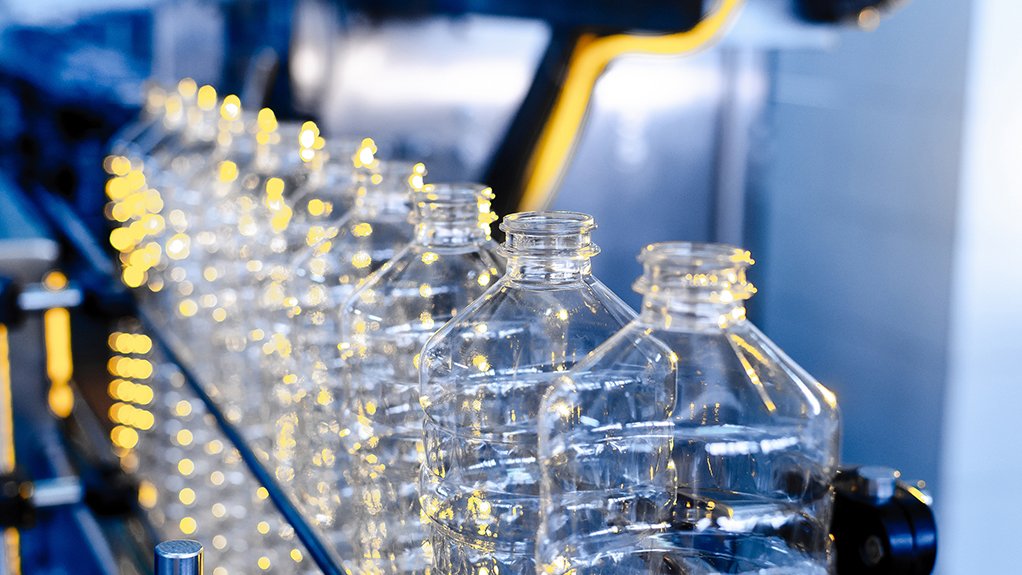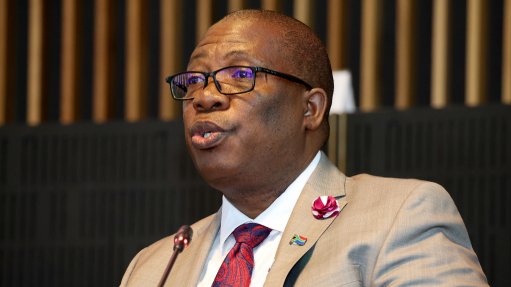Trump administration memo urges countries to reject plastic production caps in UN Treaty
The US has sent letters to at least a handful of countries urging them to reject the goal of a global pact that includes limits on plastic production and plastic chemical additives at the start of UN plastic treaty talks in Geneva, according to a memo and communications seen by Reuters.
In the communications dated July 25 and circulated to countries at the start of negotiations on Monday, the US laid out its red lines for negotiations that put it in direct opposition to over 100 countries that have supported those measures.
Hopes for a "last-chance" ambitious global treaty that tackles the full life cycle of plastic pollution from the production of polymers to the disposal of waste have dimmed as delegates gather for what was intended to be the final round of negotiations.
Significant divisions remain between oil-producing countries, who oppose caps on virgin plastic production fueled by petroleum, coal and gas. and parties such as the EU and small island states, which advocate for limits, as well as stronger management of plastic products and hazardous chemicals.
The US delegation, led by career State Department officials who had represented the Biden administration, sent memos to countries laying out its position and saying it will not agree to a treaty that tackles the upstream of plastic pollution.
"We will not support impractical global approaches such as plastic production targets or bans and restrictions on plastic additives or plastic products - that will increase the costs of all plastic products that are used throughout our daily lives," said the memo Reuters understands was sent to countries who could not be named due to sensitivities around the negotiations.
NAIROBI MEETING
The US acknowledged in the memo that after attending a preliminary heads of delegation meeting in Nairobi from June 30 to July 2, "we plainly do not see convergence on provisions related to the supply of plastic, plastic production, plastic additives or global bans and restrictions on products and chemicals, also known as the global list".
A State Department spokesperson told Reuters each Party should take measures according to its national context.
"Some countries may choose to undertake bans, while others may want to focus on improved collection and recycling," the spokesperson said.
John Hocevar, Oceans Campaign Director for Greenpeace USA, said the US delegation's tactics under Trump marked a "return to old school bullying from the US Government trying to use its financial prowess to convince governments to change their position in a way that benefits what the US wants".
A diplomatic source from a country supporting an ambitious treaty said that the treaty would be a key example of trying to preserve the multilateral system amidst a challenging global context.
"Either multilateralism becomes the lowest common denominator, and we are only able to move forward on unambitious things, or we show that we are capable of having a global framework on important issues," they said.
One of the world's leading producers of plastics, the US has also proposed revising the draft objective of the treaty to reduce plastic pollution by eliminating a reference to an agreed "approach that addresses the full life cycle of plastics", in a proposed resolution seen by Reuters.
A source familiar with the negotiations told Reuters it indicated that the US is seeking to roll back language that had been agreed in 2022 to renegotiate the mandate for the Treaty.
"Refusing to include plastic production in this treaty is not a negotiation stance. It is economic self-sabotage," Juan Carlos Monterrey-Gomez, head of delegation for Panama, told Reuters.
"Those blocking progress are not protecting their industries. They are locking their people out of the next wave of prosperity."
The US stance broadly aligns with the positions laid out by the global petrochemicals industry, which stated similar positions ahead of the talks, and a number of powerful oil and petrochemical producer countries that have held this position throughout the negotiations.
Over 100 countries have backed a cap on global plastic production.
In the US, the Trump administration has numerous measures to roll back climate and environmental policies that it says place too many burdens on industry.
Plastic production is set to triple by 2060 without intervention, choking oceans, harming human health and accelerating climate change, according to the OECD.
Article Enquiry
Email Article
Save Article
Feedback
To advertise email advertising@creamermedia.co.za or click here
Press Office
Announcements
What's On
Subscribe to improve your user experience...
Option 1 (equivalent of R125 a month):
Receive a weekly copy of Creamer Media's Engineering News & Mining Weekly magazine
(print copy for those in South Africa and e-magazine for those outside of South Africa)
Receive daily email newsletters
Access to full search results
Access archive of magazine back copies
Access to Projects in Progress
Access to ONE Research Report of your choice in PDF format
Option 2 (equivalent of R375 a month):
All benefits from Option 1
PLUS
Access to Creamer Media's Research Channel Africa for ALL Research Reports, in PDF format, on various industrial and mining sectors
including Electricity; Water; Energy Transition; Hydrogen; Roads, Rail and Ports; Coal; Gold; Platinum; Battery Metals; etc.
Already a subscriber?
Forgotten your password?
Receive weekly copy of Creamer Media's Engineering News & Mining Weekly magazine (print copy for those in South Africa and e-magazine for those outside of South Africa)
➕
Recieve daily email newsletters
➕
Access to full search results
➕
Access archive of magazine back copies
➕
Access to Projects in Progress
➕
Access to ONE Research Report of your choice in PDF format
RESEARCH CHANNEL AFRICA
R4500 (equivalent of R375 a month)
SUBSCRIBEAll benefits from Option 1
➕
Access to Creamer Media's Research Channel Africa for ALL Research Reports on various industrial and mining sectors, in PDF format, including on:
Electricity
➕
Water
➕
Energy Transition
➕
Hydrogen
➕
Roads, Rail and Ports
➕
Coal
➕
Gold
➕
Platinum
➕
Battery Metals
➕
etc.
Receive all benefits from Option 1 or Option 2 delivered to numerous people at your company
➕
Multiple User names and Passwords for simultaneous log-ins
➕
Intranet integration access to all in your organisation





















